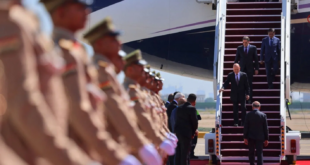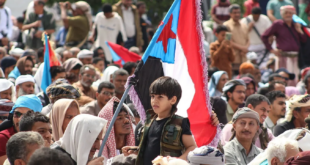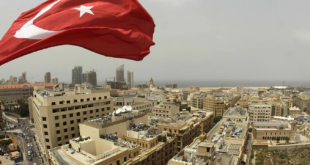More than six months after the United States killed al-Qaida leader Ayman al-Zawahiri in an airstrike in Kabul, Afghanistan, leadership of the terror group appears to have quietly passed to his heir apparent in Iran.
A new report from the United Nations, based on member state intelligence, concludes Saif al-Adel “is now the de facto leader of al-Qaida, representing continuity for now.”
Al-Qaida itself has been quiet about the status of its leadership following the July 31, 2022, strike that killed al-Zawahiri, but the report points to two reasons for the silence.
Al-Adel’s leadership “cannot be declared because of al-Qaida’s sensitivity to Afghan Taliban concerns not to acknowledge the death of al-Zawahiri in Kabul and [al-Adel’s] presence in the Islamic Republic of Iran,” the report states.
“His location raises questions that have a bearing on al-Qaida’s ambitions to assert leadership of a global movement in the face of challenges,” including from its rival, the Islamic State (IS) terror group, the report adds.
Western intelligence agencies, including those in the United States, have long viewed al-Adel as a likely successor to al-Zawahiri, describing the former Egyptian special forces officer as a capable commander with vast operational experience in multiple locations.
Starting in the early 1990s, al-Adel was part of a team that provided military and intelligence training to fighters in Afghanistan, Pakistan and Sudan.
He also helped train members of al-Qaida’s Egyptian affiliate, Egyptian Islamic Jihad, and Somalis who battled U.S. forces in Mogadishu from 1992 to 1994.
The U.S. indicted al-Adel in 1998 for his role in planning the deadly bombings of the U.S. embassies in Dar es Salaam, Tanzania, and Nairobi, Kenya, which killed 224 people and wounded thousands more.
Al-Adel is also a longtime member of al-Qaida’s senior leadership council, the Majlis al-Shura, as well as a senior member of the group’s Hittin Committee, charged with governing al-Qaida’s global operations.
Initial information shared by U.N. member states seems to indicate al-Adel’s tenure at the helm of al-Qaida has been somewhat smooth.
The report notes that al-Qaida’s propaganda efforts have become “more sophisticated and prolific” in recent months.
And some member states indicate al-Adel has been able to solidify or increase control over some al-Qaida affiliates.
In particular, at least one member state intelligence agency said al-Adel is giving “direct instructions” to Hurras al-Din, one of al-Qaida’s Syria affiliates, which is run by his son-in-law.
But current and former Western counterterrorism officials have long questioned the extent to which any al-Qaida leader could run the group from Iran, with some describing it as a “gilded cage.”
“The presence of al-Qaida in Iran is a sort of a chip that the Iranians have,” said Edmund Fitton-Brown, a former senior United Nations counterterrorism official who is now an adviser to the nonprofit Counter Extremism Project.
“They’re not entirely sure how or when they might play it but … it was something that they considered to have potential value,” Fitton-Brown told VOA, adding that al-Adel running the terror group from Tehran is “not that big a change from what the situation was before Zawahiri was killed.”
“Al-Qaida has always been a consultative organization,” he said. “They have a Shura, a leadership, and Saif was already part of it. He was already a very important voice in that leadership. He’s now a more important voice in that leadership.”
Some U.S. officials, however, argue Iran is likely more than willing to help al-Qaida’s Iran-based leadership, despite significant religious differences between Iran’s Shia regime and the terror group’s origins as a Sunni group.
“Al-Qaida has a new home base. It is the Islamic Republic of Iran,” then-U.S. Secretary of State Mike Pompeo warned in early 2021.
“Tehran has allowed al-Qaida to fundraise, to freely communicate with al-Qaida members around the world, and to perform many other functions that were previously directed from Afghanistan or Pakistan,” Pompeo said at the time, labeling Iran as al-Qaida’s new “operational headquarters.”
Other U.S. officials contend that Iran’s relationship with al-Qaida is and has been transactional in nature, that Tehran will help al-Qaida when it suits the leadership’s purposes and crack down on the terror group at other times.
A request for comment by VOA to the Iranian Mission to the U.N. about the presence of al-Qaida leaders in Iran and the Iranian government’s relationship with the terror group was not immediately answered.
Still, some experts contend that al-Adel’s decision to continue to operate from within Iran may be telling.
Al-Adel “certainly could move back to Afghanistan. He could move to other locations,” counterterrorism analyst Thomas Joscelyn told VOA. “It does suggest that he has such a cozy environment inside Iran and is safe enough inside Iran and doesn’t have to worry about drone strikes, for example, inside Iran.”
It may also speak to al-Adel’s comfort level with the Iranian regime itself.
“Saif al-Adel is a guy who has worked with the Iranians for 30 years,” Joscelyn said, noting the new al-Qaida leader trained with Iran and its proxy terror group, Hezbollah, in the early 1990s.
“The question is, what are the terms of the deal, and what is it Iran is helping them with besides giving them safe haven?” he said. “Those are open questions.”
Yet as the U.N. reports suggests, there is also a potential downside to the relationship that is likely to play into the hands of IS, also known as ISIS or ISIL.
“The optics of the actual leader of al-Qaida being effectively at the mercy of Iran … it makes it easier for ISIL to attack al-Qaida, as you know, being a cat’s paw [dupe] of the Shia,” said Fitton-Brown.
For now, the latest public assessments from the United States suggest al-Adel, regardless of his location. may be intent on recreating al-Qaida as a fighting force to be feared, though getting there will not be without challenges.
Al-Adel “is probably interested in improving al-Qaida’s battlefield capabilities, though the decentralized organizational structure is likely to impede his ability to make rapid changes,” the Defense Department inspector general said in a report in November, citing information from the Defense Intelligence Agency.
The U.S. has been offering a $10 million reward for information leading to al-Adel’s capture or conviction.
 Eurasia Press & News
Eurasia Press & News




